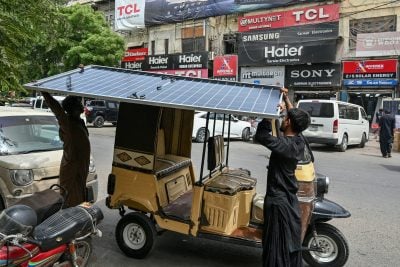As Covid-19 and the war in Ukraine continue to send shockwaves through the agricultural sector, the damage to global food security is becoming irreversible. Currently 1.2bnn people are suffering from chronic undernutrition and more than 820m people, or 10% of the world’s population, are going hungry, according to the UN’s Food and Agricultural Organisation (FAO.)
That’s not all. More than 48m people around the world are on the brink of famine, according to World Food Programme (WFP) estimates. And, as the Global Network Against Food Crises (GNAFC) reports, the situation is fast worsening: at 193m, the number of people facing acute food insecurity at crisis levels or worse in 2021 was up by nearly 40m compared to 2020.
Before 24 February 2022, a confluence of forces – including the global pandemic, climate change and evolving dietary habits – was already conspiring to fracture already fragmented supply chains. Then the Russian invasion of Ukraine quickly escalated the situation as Russia’s blockade on the export of millions of tonnes of Ukrainian grain dramatically hit food-price inflation. The two agricultural giants account for 29% of global wheat exports and 62% of sunflower oil production collectively.
This has hit emerging markets and developing economies disproportionately hard, with five of the ten most-at-risk countries located in Africa, according to the WFP.
Green shoots of hope
Yet an enormous opportunity for Africa to take back control of its future food security systems lies with the continent’s small and medium-sized enterprises (SMEs), which provide about 80% of jobs.
Sub-Saharan Africa alone is home to 44m micro, small and medium-sized businesses, providing communities and families across multiple countries with prospects, jobs and income. They are also essential players in ensuring food security: just 20% of food production is for the growers. The remaining 80% is mostly marketed and handled through an intricate network of private suppliers.
It has been proven time and again that a stable, developing and well-connected SME can unlock financial inclusion for entire communities. This makes it a painful irony that the SME sector in Africa has suffered more than anywhere else since 2019.
Despite the multi-faceted challenges, there are glimmers of hope across Africa’s SME spectrum. The MasterCard SME Confidence Index revealed that 74% are confident about the next 12 months and close to half expect their revenues to increase.
Essential to this growth will be digital payments and digitalised processes, streamlined access to credit and funding, better data and trans-border trading. The vast majority of respondents (89% in Kenya, 81% in West Africa and 73% in Cote d’Ivoire) were also confident that e-commerce too will play a game-changing role.
At the core
However, for Africa’s food systems to undergo the transformation that is so essential, multiple systemic issues must first be addressed. These are beyond the scope of a single organisation or initiative: until organisations stop working in silos and start collaborating effectively, any efforts to drive transformation will be severely hampered.
Similarly, slow investment rates in agriculture and food production are holding back change. There needs to be a stronger focus on encouraging trade between areas of surplus and those of deficit. And, while many other socio-economic and environmental drivers also need attention, nothing is more important than replacing imports into Africa with home-based production.
The focus also needs to shift to nutrition, enabling the uptake of balanced diets including elements like fruit and vegetables, dairy, meat, fish, lipids and tubers as well as traditional staples like grain, rice and cassava. Progress is visible: these more diverse foodstuffs now form between 50% and 70% of urban and rural diets. Processed foods, too, are rapidly gaining traction, providing greater opportunities for increased production and value added across the African food system, generating more jobs, more income and better food security.
To get this process rolling, the AGRF and IDH are combining their strengths and areas of expertise to generate some real impetus, with important focus on the AGRF 2022 summit, taking place from 5-9 September in Kigali, Rwanda. The summit gathers farmers, SMEs, leaders, officials and other voices across agriculture, government and the public and private sectors, to combine resources and effort, generate and pledge funding, and drive new policies for the future.
Transformational impact
Many initiatives already underway are proving the transformational impact that the right will and energy are capable of having on Africa’s SMEs and food systems. For example, Rwandan horticultural business Garden Fresh is one of the SMEs being supported by the HortInvest project in which IDH is involved. HortInvest focuses on developing domestic markets, improving nutrition and food security, developing export value chains and enabling increased sustainable incomes for 44,000+ farmer households.
Daan Wensing is the CEO of IDH, and Jennifer Baarn is Managing Director of AGRF.
Want to continue reading? Subscribe today.
You've read all your free articles for this month! Subscribe now to enjoy full access to our content.
Digital Monthly
£8.00 / month
Receive full unlimited access to our articles, opinions, podcasts and more.
Digital Yearly
£70.00 / year
Our best value offer - save £26 and gain access to all of our digital content for an entire year!

 Sign in with Google
Sign in with Google 





